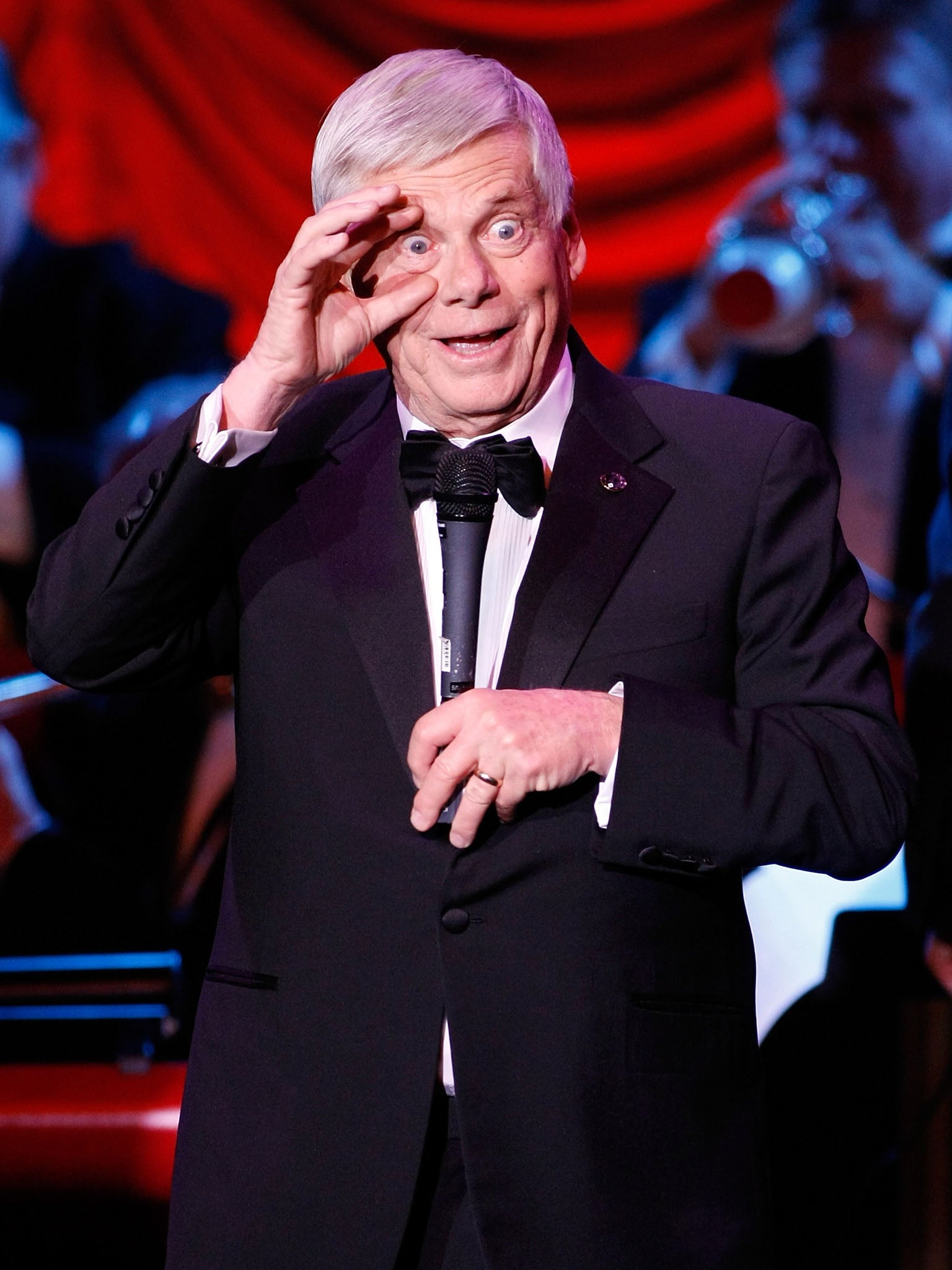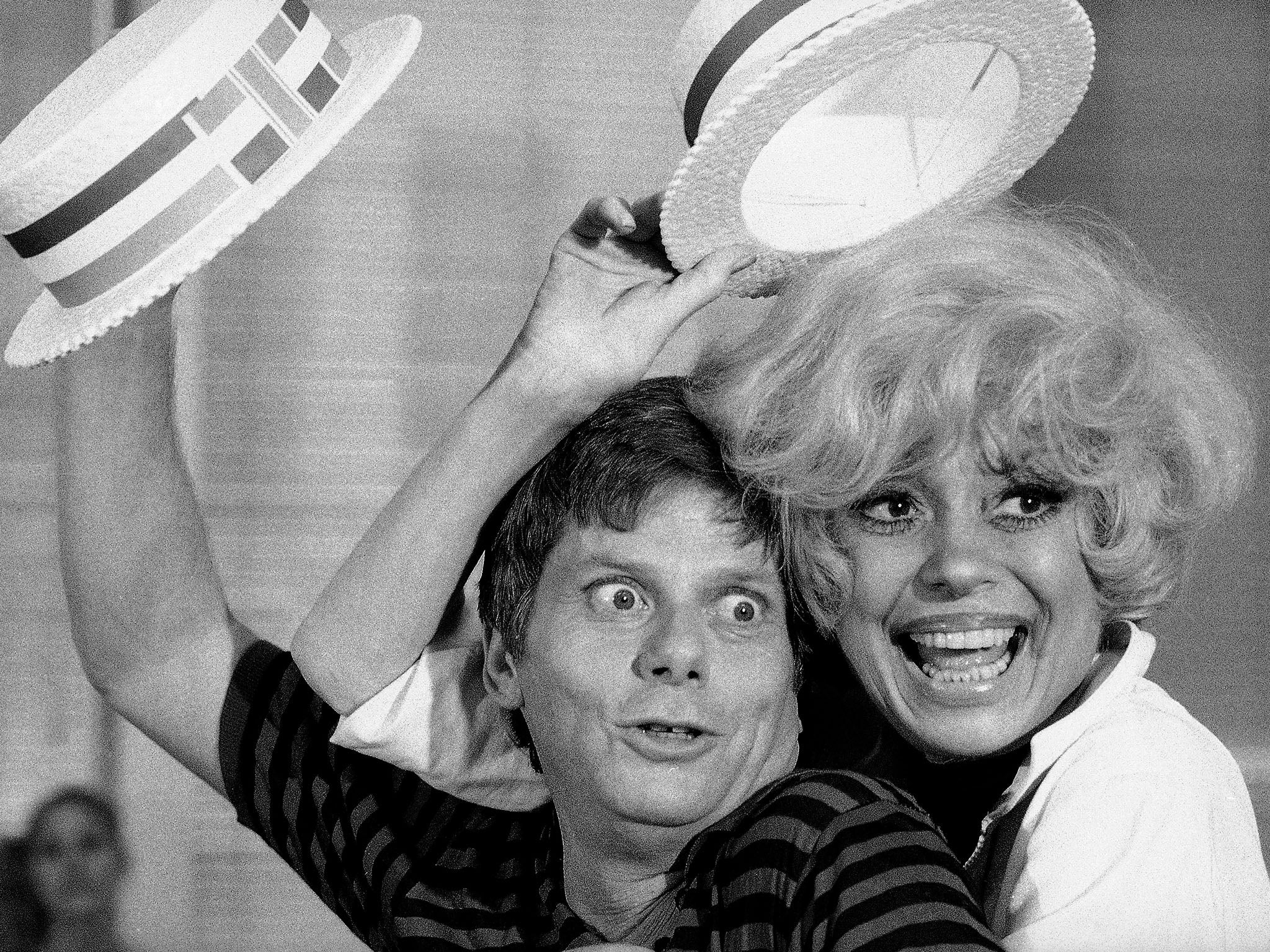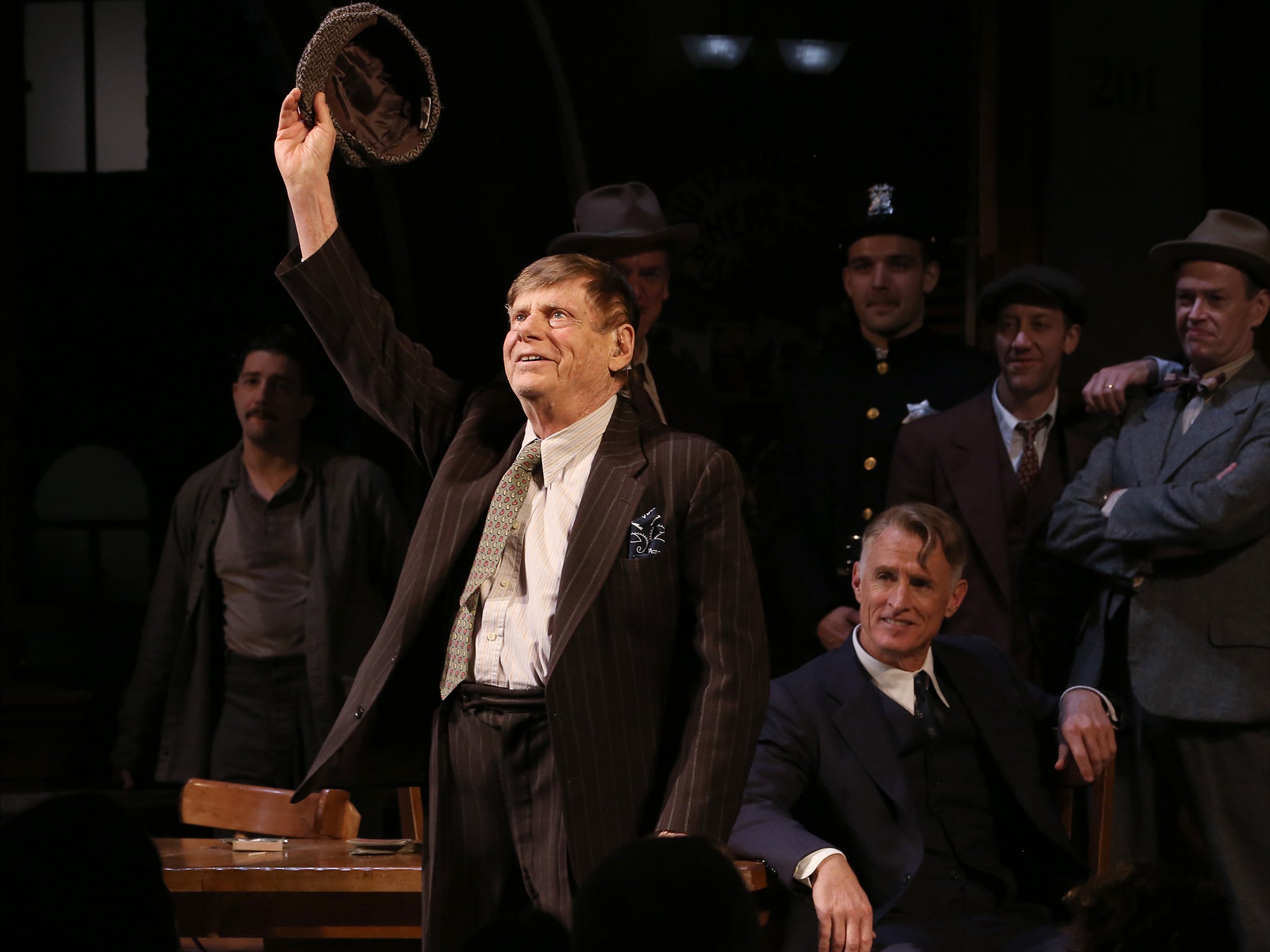
Robert Morse, a puckish Tony-winning actor who starred in the Broadway musical How to Succeed in Business Without Really Trying, transformed into author Truman Capote for a celebrated one-man show and delighted television viewers as the eccentric advertising executive Bert Cooper on Mad Men, has died aged 90.
A gap-toothed actor who retained a youthful energy well into retirement age, Morse became a Broadway sensation playing the beguiling schemer J Pierrepont Finch, a window washer who rises to become chairman of the World Wide Wicket Co in How to Succeed in Business Without Really Trying.
Based on a satirical book by Shepherd Mead, the musical premiered in 1961 and ran for more than three years, winning a Pulitzer Prize and seven Tony Awards, including best actor in a musical for Morse.
Whether kissing up to the company president (Rudy Vallée), flirting with a secretary (Michele Lee) or shaving in front of a bathroom window while singing his signature tune, “I Believe in You”, Morse was “an exhilarating zany [actor]”, wrote theatre critic Walter Kerr, “a 16th-century harlequin with a Dow-Jones soul”.
The show’s fans included John F Kennedy and his family – Morse fondly recalled hanging out at Hickory Hill, Robert F Kennedy’s home in Virginia – and led to a 1967 movie adaptation featuring Morse and other original cast members.
The film was well received, but Morse struggled to translate his theatrical success to the screen, appearing in light comedies and bedroom farces that were largely ignored by viewers. He played a British poet learning the funeral business in The Loved One (1965), taught Walter Matthau how to cheat on his wife in A Guide for the Married Man (1967) and unwittingly drank Doris Day’s sleeping potion in Where Were You When the Lights Went Out? (1968).
He also got his own television show, starring with EJ Peaker in the ABC musical comedy That’s Life (1968-69), which received an Emmy nomination and featured a procession of guest stars – George Burns, Goldie Hawn, Sid Caesar – but was cancelled after one season.

Morse later said he battled depression and alcoholism while trying to branch into dramatic roles, frustrated at being typecast as a prankish star of musical comedies. (He maintained that his drinking only interfered with his personal life and he got sober in 1975.) To pay for his children’s education, he took jobs in dinner theatre; for a time, he collected unemployment checks and spent his days playing golf.
“I was thought of as a musical comedy performer,” he told The Los Angeles Times, “a How-to-Succeed, sing-a-song, gaptoothed leprechaun, likable, fun to have at parties sober, but not an actor.”
That began to change when he starred as the late author Capote in Tru, delivering a monologue that was taken mainly from the words of the writer himself. Written and directed by Jay Presson Allen, the play opened in 1989, ran for 297 performances and earned Morse his second Tony. He received an Emmy Award after the production was filmed for American Playhouse.
“With his mad shopping-bag woman’s cackle and darting lounge lizard’s tongue, Morse so eerily simulates the public Capote of the pathetic waning years that he could be a Capote robot,” wrote New York Times theatre critic Frank Rich. He added: “One is glad to have met up with this actor again, is impressed by his command of his technique and his audience, and is moved by the courage that has allowed him to return to a Broadway stage in so unlikely a vehicle.”

Morse had another late-career triumph with Mad Men, playing the dapper co-founder of Sterling Cooper, a fictional ad agency in the 1960s. As the zen-like Cooper, he collected modern art, embraced Japanese culture and was rarely seen wearing shoes. His character was given a gentle send-off midway through the seventh season, but returned to adman Don Draper (Jon Hamm) later that episode as a hallucination, performing a song-and-dance routine to the tune of “The Best Things in Life Are Free”.
The scene was a joyous reminder of Morse’s flair for musical comedy, even if some of his fellow cast members were unaware of his earlier work.
“The first day I went on the set, I thought I’d walked into the road company production of How to Succeed,” he told Rolling Stone in 2014. Walking through the aisles, he sang “A Secretary Is Not a Toy”, one of the musical’s best-known songs. “Everybody looked at me like I was crazy, because they’re all so damned young!”
“To be fair,” he continued, “I look more like Rudy Vallée’s boss Biggley than J Pierrepont Finch now.”
Robert Alan Morse was born 18 May 1931. His father owned a movie-theatre chain, according to a New York magazine profile, and his mother was a classically trained pianist. Like Capote, Morse said he shared a sense of growing up an outcast in a family that considered him, as his character put it in Tru, “a sort of two-headed calf”.

Encouraged by one of his schoolteachers, he focused on theatre, traveling to New Hampshire and making his professional debut in a 1949 production of Our Town. He served in the navy during the Korean War and later settled in New York, training at the American Theatre Wing and auditioning for the role of a merchant's apprentice in Thornton Wilder’s comedy The Matchmaker.
Morse had few credits to his name, aside from an uncredited role as a wounded sailor in The Proud and the Profane, a recently completed war movie. When the play’s director asked about his experience, he began to talk about the film before he was interrupted by his agent, who declared that Morse had just finished a major movie with William Holden and Deborah Kerr.
The Matchmaker opened in 1955 and ran for more than a year, leading to a national tour and a 1958 film version in which Morse reprised his role. (The play also served as the basis for the musical Hello, Dolly!)
Over the next two years, Morse received Tony nominations for the backstage comedy Say, Darling and Take Me Along, a musical adaptation of Eugene O’Neill’s play Ah, Wilderness. He was also nominated for Sugar, a musical version of the cross-dressing film comedy “Some Like It Hot,” and returned to Broadway at age 85 to appear in a revival of The Front Page.
By then he was increasingly working in television, with credits that ranged from Grandpa in the TV movie Here Come the Munsters (1995) to journalist Dominick Dunne in The People v OJ Simpson (2016), part of the FX anthology series American Crime Story.
His marriage to Carole D’Andrea, a West Side Story actor, ended in divorce. In 1989, he married Elizabeth Roberts. In addition to his wife, survivors include three daughters from his first marriage; two children from his second; a brother; and five grandchildren.
Morse said that while he loved musical theatre, playing Capote fulfilled a dream of getting “a dramatic role that touches every part of you”. But he resented being asked about parallels between him and the character, as he had when he played roles like the musician Jerry, who dresses as a woman to escape gangsters in Sugar.
“No matter what I do, people want it to hook in – drinking or women’s clothing or male/female identity,” he told New York magazine in 1990. “They want to know, ‘What are your secrets?’ I say, ‘Hey, just like yours. I got the same ones’.”
Robert Morse, actor, born 18 May 1931, died 20 April 2022
© The Washington Post







